Usage of AR and VR in the hospitality sector
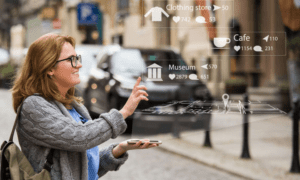
1. Scope of the Hospitality Sector
Before we discuss about AR/VR hospitality campaigns, we must first take a look at the areas covered under hospitality.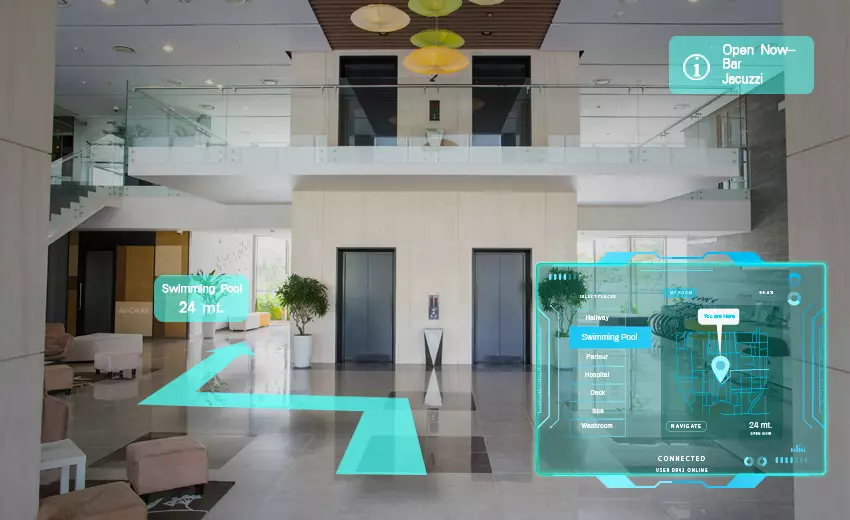
Hospitality in its literal sense means welcoming someone, by providing them comfort and entertainment. Thus, businesses like hotels, resorts, travel planners, restaurants, resorts and even theme parks come under the vast umbrella of the hospitality sector. Moreover, ventures involving fooding, lodging, tourism, and recreation have some or the other element of hospitality that aim at providing utmost level of convenience and entertainment to their customers.
While the fooding industry includes bars, restaurants etc., the travel industry encompasses holiday planners and airlines. Hotels and homestays form the lodging sector while providing comfortable and luxurious stays to people. All these industries are interlinked in order to cater to the needs of travelers and provide an enriched experience.
2. Hospitality and AR/VR
The hospitality industry accumulates a revenue of more than $500 billion every year. In the modern era, where everything has gone digital, the hospitality industry is also utilizing technology to improve the overall experience that it lays out to its customers. Moreover, the industry has also witnessed various campaigns using augmented and virtual reality which in itself has set benchmarks when it comes to utilizing AR/VR for marketing.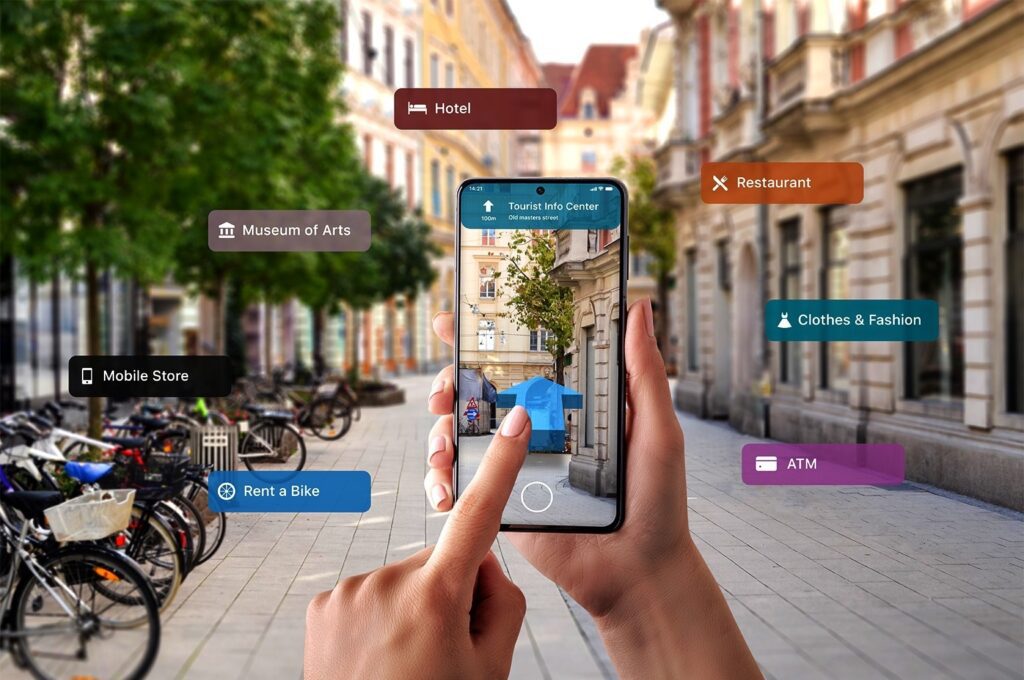
The most important reason why augmented reality marketing is being extensively used in this sector is because by using AR, businesses are able to provide a beforehand experience to their customers before they make a rental decision. Moreover, the use of AR helps hotels ensure that their arsenal is up to date with the latest trends of the market. Also, AR tours can be easily put out to customers while being cost efficient and highly engaging. Thus, by using the latest ER tech, the hospitality industry is working on marketing campaigns which are far reaching and impactful.
One of the most important reasons why the hospitality industry has readily started using AR/VR in product marketing is that it facilitates better decision making by providing a before hand experience to customers. This is one of the key steps when it comes to making better buying decisions. Also, by using such technologies, hotels and other hospitality undertakings ensure their customers that they will keep themselves updated with the latest trends of the market. With the help of online presentations, businesses can easily display Virtual and Augmented reality tours that are cost efficient and intuitive for the user.
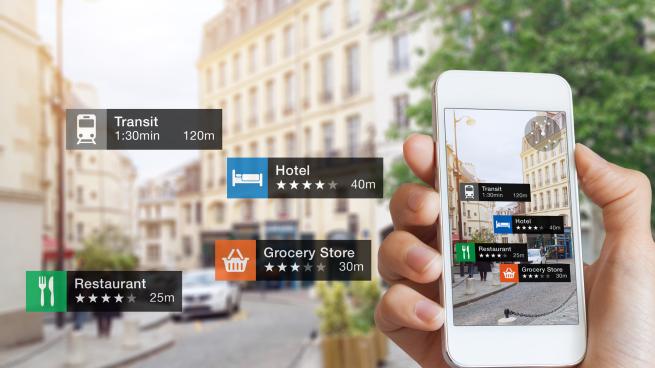
The hospitality industry harnessed the use of Augmented and virtual reality to solicit customers despite the world population being put under a complete lockdown. Through extensive levels of tech based marketing, businesses provided lifelike experiences of their services to their probable customers in order to develop their trust and liking towards the brand. The other benefit derived from such interactive marketing sessions was that the hospitality ventures were able to acquaint themselves with their customers’ preferences. Thus, such undertakings were able to adapt to the changing trends and present a different outlook post the pandemic.
3. AR/VR in Hospitality sector
With innumerable benefits and opportunities, the hospitality sector is exploring new possibilities by using AR/VR marketing. With the help of Augmented reality, brands change their customers’ perception of their surroundings as the AR tech supplements the overall travel experience. With AR driven apps like City Guide Tour, users can easily derive information using the object recognition software that display all that one needs to know about a landmarks, monuments, galleries or museums. These applications use crowd sourced information in their database to help travelers as their personal guide.
Tech gizmos like the AR glasses or VR modules unburden the travelers as they no more require a tour guide in their oncoming voyages. The developments on smartphone technology has made augmented and virtual reality a lot more accessible. Thus, the hospitality sector is able to accentuate its hold over the market by exploring the unexplored means of promotion to feed the wanderlust of travelers.
By using augmented and virtual reality, travelers can get beforehand experience as to what their next stay would look like and whether it is worth the buck. With the help of VR tech, passengers can go beyond flat screens and witness new realms of onboard entertainment in flights. Moreover, this might even help them overcome the fear of being airborne.
Travel planners and web booking platforms like World VR help agents by giving a 360 tour of the most suitable and desired holiday destinations, outings and resorts.
4. Examples of AR and VR in the hospitality sector
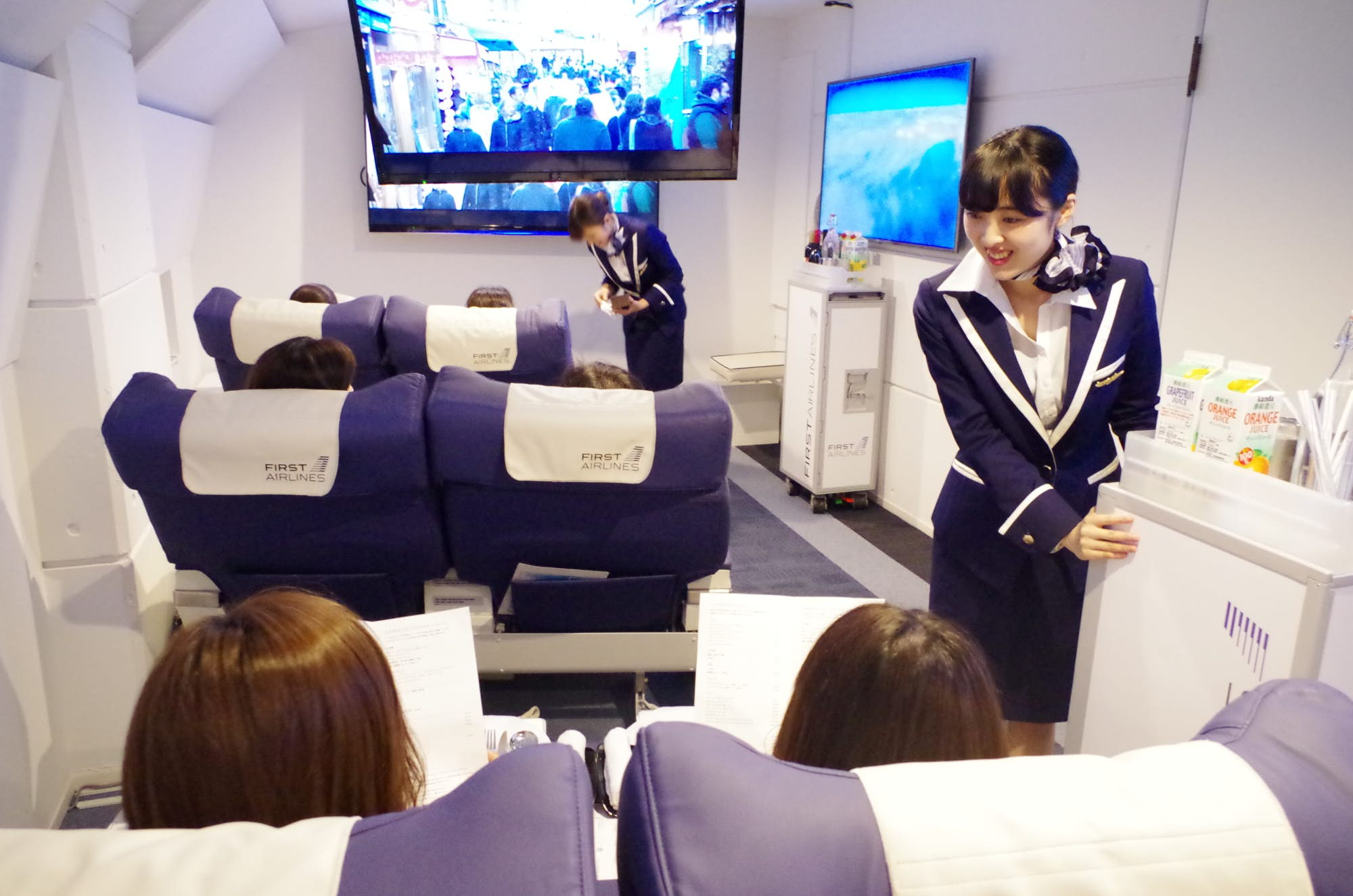
1. First Airlines VR Travel Experience:
As the Hospitality sector witnesses extensive usage of Virtual Reality, travel businesses like First Airlines have started offering virtual tours of the most sought after holiday destinations like Paris and Hawaii. Not only does the VR drive include a first class ticket to your most favorite destinations, it also includes a four course meal for all customers on board. This comes complimentary with a tour of the important sites of the destination.
If you’re thinking that’s it, well there’s more. First Airlines is willing to increase its conversions and sales by using Augmented Reality as a means to evaluate its customers and their feedback.
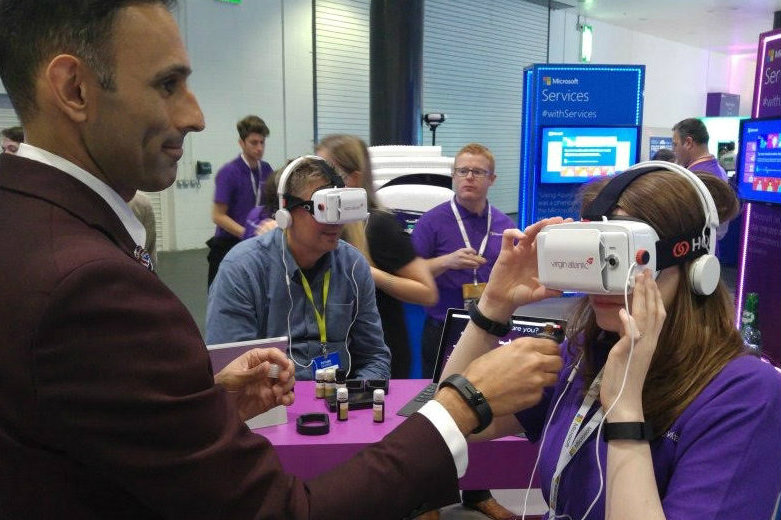
2. Virgin Atlantic Augmented Reality Experience:
In an effort to lure tourists, Virgin Atlantic is training its flight crew to work with their latest application that uses augmented reality to provide a surreal experience of their latest 787 Dreamliner. It also gives the customers a firsthand experience of what it feels like to travel with the airline.
By using the application, customers can surround themselves with the Augmented Reality tour on their smartphones and move around the aircraft by dragging their fingers to the desired viewing angles. In order to strengthen its foothold in the industry, the airline feels that its lifelike sessions using Augmented Reality can lead to a lot more conversions.
The airline is showcasing its latest tech including the new lighting of the cabin and the latest onboard entertainment upgrades. Viewers can become a part of all that this virtual tour has on offer by simply visiting the Virgin Atlantic’s mobile website. This virtual exploration drive is complemented by several hidden videos in the form of YouTube attachments that offer more insights into certain specific features.
3. Gatwick Airport’s Navigation System:
In a transformation spree worth more than 2.5 billion dollars, the Gatwick Airport is installing navigation beacons for passengers to navigate their way through the airport and reach boarding gates on time. To aid this, the Airport Authorities have launched the Gatwick’s navigation app through which passengers can readily know their current location by simply scanning the beacons using the mobile-based application. While Google Maps and their counterparts become unusable indoors, the Gatwick’s navigation app saves time thus preventing inconvenience.The mobile-based application works by scanning the beacons (also called the ‘blue dots’) using the camera, thereby helping the passengers locate important places in the airport premises like the departure gates, baggage carousels, exit gates, etc. Just like Google Maps that gather information about traffic spots, the Gatwick’s navigation app also tracks data like ‘people densities’ to help the airport authorities manage their operations. The authorities can measure queues in order to reduce congestion and streamline traffic, thereby easing operations.
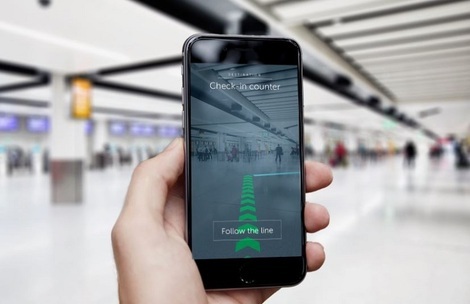
4. Atlantis Hotel Dubai Virtual Tour:
In a first, the Atlantis Hotels of Dubai have launched their virtual tour that lays emphasis on the colossal architecture of the façade, including the traditional arc-shaped entrances and the eye-striking ambiance of the gathering halls. Through this pre-booking virtual tour, Atlantis Dubai aims to ensure its customers that they will experience nothing but the best services throughout their stay.5. Kimpton Gray Hotel, Chicago, IL:
As an exemplar of how to sell your rooms using 3D videography and imaging, the Kimpton Gray Hotel in Chicago is putting out its variety of rooms and meeting spaces to potential customers. The hotel also showcases its praiseworthy architecture thereby facilitating better decision-making by event planners. Be it a wedding ceremony or a conference, Kimpton Gray has you covered with its extensive packages and services.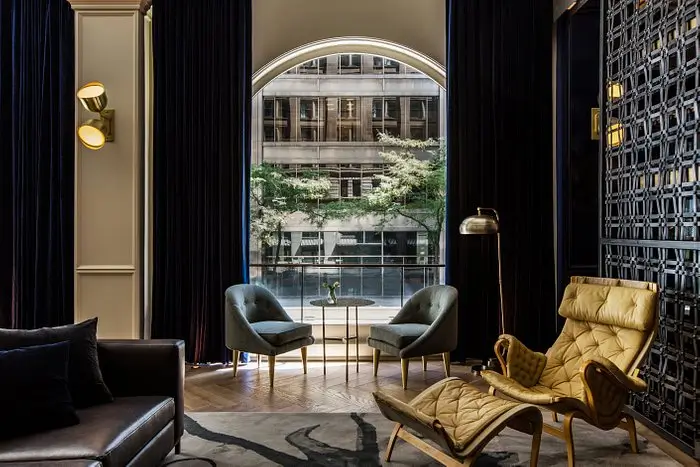
6. City Guide Tour:
The City Guide Tour is a mobile-based application that harnesses Augmented Reality in order to provide travelers the most convenient yet affordable virtual tour guide. Irrespective of your next travel destination, your tour guide is just a click away with City Guide Tour.The application does away with heavy guide books and strict schedules and also unburdens the travelers from paying hefty prices to personal guides. The City Guide Tour provides all the above-listed amenities and more right under your fingertips.
The application tracks the mobile’s location to ensure that the user is served with only relevant and required content. It provides a list of monuments and locations under its menu from a given location, and once the user reaches the given spot, the application displays a notification that the City Guide Tour is ready to guide its user.
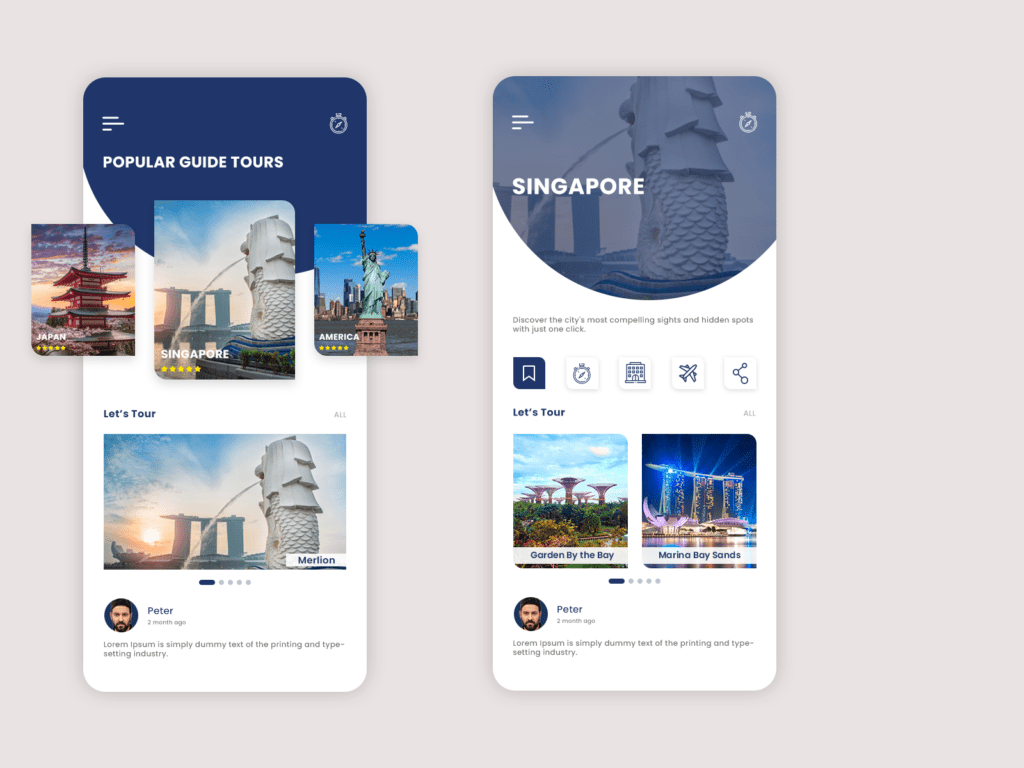
Since the application is designed to serve travelers from across the globe, its interface is multilingual. This makes the user feel just like home as the virtually guided tour is available in their native language. Spain on France, the City Guide Tour is available to guide your next adventure in your own mother tongue. The application has added convenience by making tour guides downloadable for users. Thus the users need not worry about low battery life or poor connectivity as they can download the maps and guides beforehand.
7. AR City:
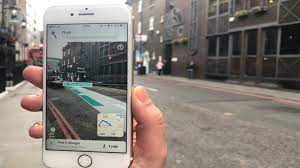
The future of navigation and city travel is here with AR City, an application that currently supports more than 300 cities across the globe. The mobile-based application amalgamates Augmented Reality with camera images and videos to enhance the travel experience of users, especially those who are new to the city.
By using computer vision, the application is able to localize with much more accuracy than conventional GPS. It projects 3-dimensional directions for its users that save them from getting lost in their suburban neighborhood. As the users move forward, the application even projects the names of oncoming streets, crossroads, and even buildings.
The developers of the application claim that the 300 city mark is just the beginning in their quest to transform suburban navigation. They have stated that the application is undergoing continuous improvements to make traveling seamless and more immersive. The application runs on two technologies – Augmented Reality and Computer Vision and mixes AR-driven navigation with the contents of maps and visual positioning.
5. Benefits of using AR/VR in hospitality marketing
-
Increasing effectiveness of brand promotions
Effective marketing is the key to boosting sales and conversions. Advertisement and marketing campaign are conducted with the sole objective of promoting the products and services of a brand with utmost efficiency. With the help of augmented reality, brands ensure that their promotional campaigns and ventures are not only effective but also engaging and different from the mainstream. This not only sets them apart from other brands which use conventional advertising methods but also increases sales. -
Get people talking about your brand
In its initial days, augmented reality had its direct focus on improving sales and conversions. However, with the changing demands of the market and the e-commerce, brands have started to use augmented reality for not just promoting a product but also engaging people and letting them know about the brand itself. Today, brands use augmented reality as their own unique effort to create a buzz in the competitive market. It is often seen that people prefer brands which not only provide good quality products and services but also keep their customers satisfied. On top of this, customers also like to have a bit of fun amidst their shopping spree. For this purpose, various brands and stores use augmented reality as a means to entertain their customers. This not only enhances the identity of a brand but also increases its exposure. A thoughtfully designed augmented reality setup can prove to be impactful and has a long lasting effect. -
Cost efficient marketing
Since augmented reality is majorly a product of this century, one might easily believe that the cost of such forms of marketing would be exorbitant. However, with new technological advancements, the tech required for augmented reality marketing has gotten cheaper with every fortnight. With brands offering an augmented experience through their own applications, augmented reality marketing has proved to be far less expensive when compared to marketing through the traditional media.
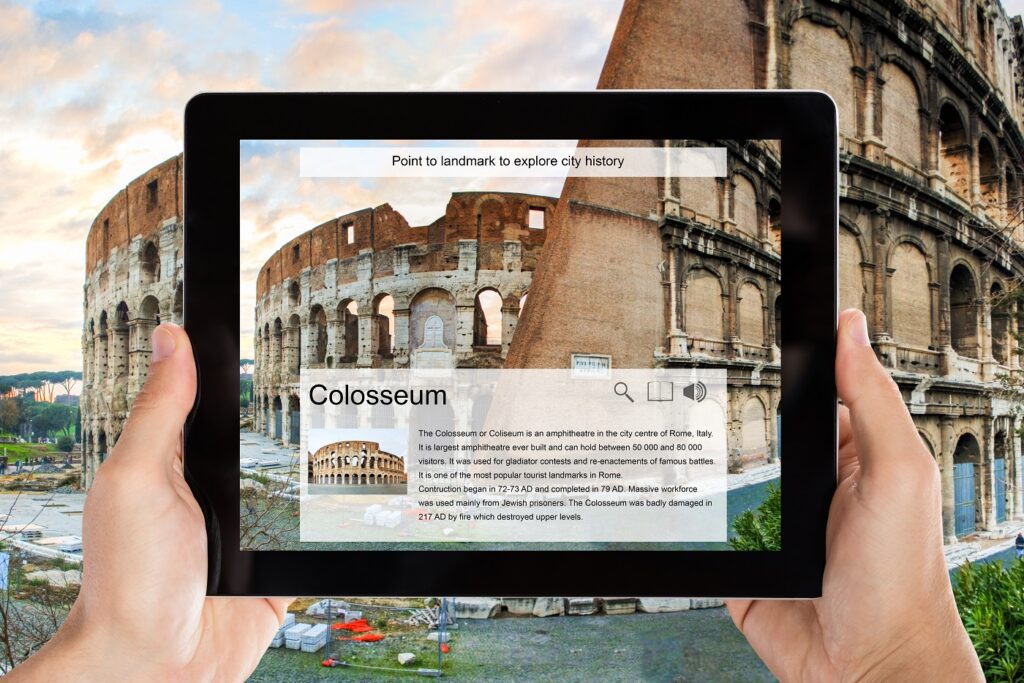
Thus augmented reality marketing is not only cost effective but also efficient and helps the brand save a lot of money on conventional methods of advertisement.
Augmented reality – A sale booster
When it comes to marketing, the ability of a brand to keep its consumer engaged and entertained can be beneficial in increasing conversions and sales. In this effort, augmented reality can prove to be a unique step as it appeals to a majority of tech savvy customers. Engaging ads not only make the customer inquisitive but they also help to make the brand a point of discussion. Thus, with the help of augmented reality marketing, brands can effectively convert their viewers into customers thereby boosting sales.
Visual oriented
Audio Visual advertisements undoubtedly catch more eyeballs than the traditional text based advertisements. Businesses can use augmented reality for its visual advantage as it would help them to convey their message with utmost clarity. Moreover, such audio visual advertisements help brands in overcoming the language barrier by providing interactive visual sessions.
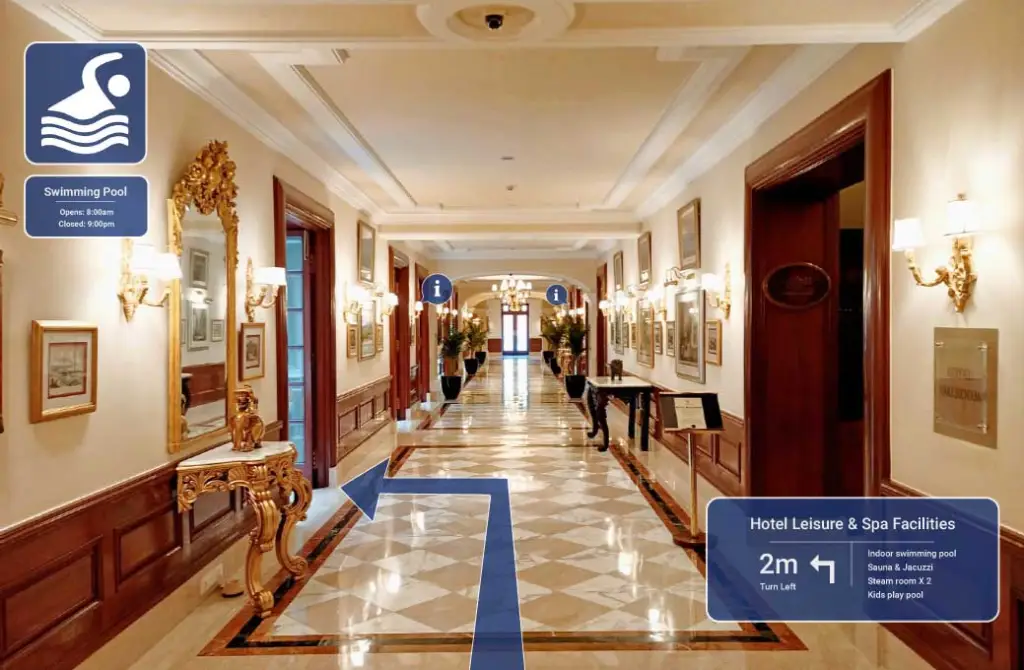
An aid to Social Media marketing
The power of social media marketing is largely being felt in the 21st century. Brands are using all they can to channelize their resources towards the target audience. Small or big, local or international, innumerable number of brands have taken their businesses aboard the ginormous ship of social media marketing. Augmented Reality based marketing has the potential to compel a wide range of customers towards buying a product. Moreover, using Augmented reality not only proves to be efficient but also cost effective.
Providing better services
Customer satisfaction is amongst the top priorities of any business venture. A happy customer translates to a loyal customer. On top of this, such loyal customers bring in more viewers thereby increasing overall conversions. Using augmented reality, brands can help in educating their customers and guide them towards making smarter decisions. Moreover, augmented reality eliminates dissatisfaction and doubts Regarding a certain product for service.
6. Future of AR and VR Marketing
With continuous technological advancements, augmented reality marketing has continued to pick up pace especially in the preceding years. With brands and marketers developing more creative with advertisements, consumers are able to get a vivid experience of products and services before making an investment. With a huge chunk of market shifting towards ecommerce, digital marketing tech has become highly advanced with continuous developments to make online shopping more effortless. Every passing year, our reliance on the Internet has shown a steady increment. This suggests that ecommerce and digital marketing are those spheres which will only increase in the days to come. With their own unique interfaces, brands are able to entice a larger number of customers than their counterparts which lack digital marketing skills. The Internet era has opened new doors for buyers as well as sellers across all businesses. Be it the retail sector, hospitality or tourism, almost all businesses have taken their ventures to the Internet. With advanced data monitoring systems, it has become easy for brands to adapt to the changing needs of their customers and serve up to their expectations. Here, augmented reality saves the day as the discerning consumers of the century prefer to try a product or service before buying it. As the current trend of using augmented reality for marketing gains popularity amongst brands, More and more companies will now devolve solutions to provide a glimpse of their product in real time. Ecommerce stores are readily investing in technologies of augmented reality marketing as well as virtual tech experiences. The concept of marketing using AR and VR Has become a personal favorite for clothing, shoe and apparel manufacturers. Be it accessories, eyeglasses, home décor or makeup, augmented reality has opened new doors for developing even more effective marketing strategies for businesses.6. Conclusion
With the global travel and hospitality industry bagging more then 3 trillion dollars in the year 2021 alone, it is expected that the realms of this market will grow significantly especially in the post pandemic era. As people venture out in the open to feast themselves after the three year long lockdown, the hospitality industry is expected to grow at a much steady pace than it has ever before.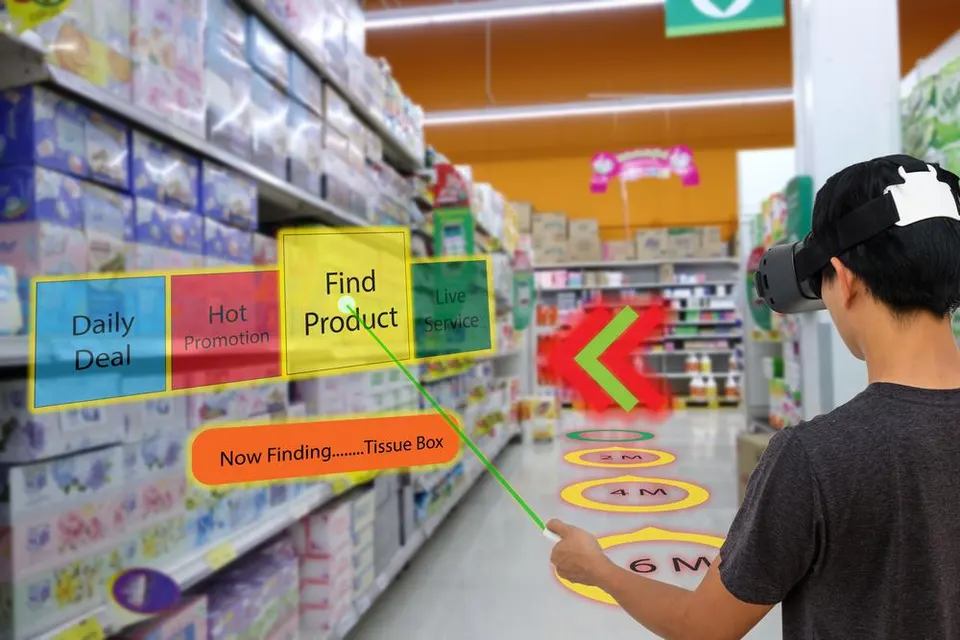
Here comes the role of marketing and technological aids that use Augmented and Virtual Reality to attract customers since the two are the offsprings of the 21st century. Be it the tech savvy travelers or the entire Gen Z itself, all like a tinge of tech in their everyday lives. Moreover, Augmented and virtual reality not only make travel fairly convenient but they also add the elements of fun and engagement in peoples’ adventures. Thus, in this highly competitive marketspace, businesses that keep adapting to the changing tech and adopt the newer trends of the industry are certainly the ones that are bound to succeed.



